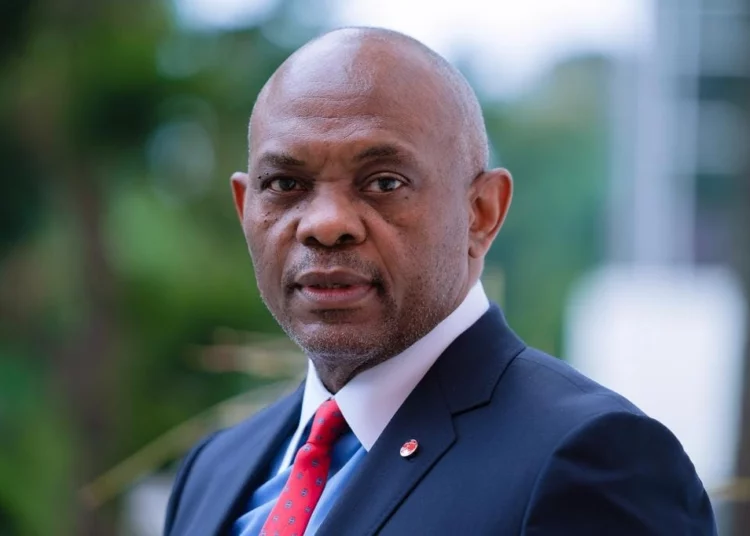Chairman of Heirs Holdings and United Bank for Africa (UBA), Tony Elumelu, has called for mobilising $4 trillion in domestic capital across Africa to drive large-scale investments in artificial intelligence (AI), energy, and infrastructure as part of a deliberate strategy to democratise prosperity on the continent.
Elumelu, while speaking on “Boosting Productivity Growth in the Digital Age” at the ongoing International Monetary Fund (IMF)/ World Bank annual meetings, noted that an untapped $4 trillion capital within the African continent needs to be tapped to develop the continent.
Stressing the need to invest in infrastructure to democratise prosperity in Africa, he said, “That is where public-private partnership becomes very important. We need to attract and mobilise massive capital and investment to help address our deficit on the continent.
“It is estimated that we have over $4 trillion in domestic capital on the continent. We will not strain governments’ fiscal capacity if we can mobilise this. But the challenge is in working together to mobilise this capital, and to do so, we need to establish trust. We need to establish accountability.
“We need to ensure that domestic savings and capital mobilisation on the continent are actually working for its people and channelling those resources into the required areas. If we were to fix access to electricity, we would, to a large extent, have dealt with the issues of productivity, youth employment, and engagement, and support the rest of the world.
But a few more things have to happen.”
With a young population, Elumelu pointed out that over 60 per cent of the African population is under the age of 30 and is constrained by capital. According to him, the African youth population is “quite creative, energetic, and wants to contribute their own part to the development of the continent.”
The youth population is not asking “for sympathy,” they don’t ask for a handout. They just want to have systems that work. And for systems to work, we need everyone working together to achieve this.
Elumelu stressed that Africa stands at a defining moment that demands “massive and coordinated investment” to unlock productivity and opportunity for its young population. He noted that while the digital age presents unprecedented potential for economic transformation, structural barriers such as inadequate infrastructure, capital constraints, and electricity deficits continue to hold the continent back.
“Productivity in today’s age is really about people. It’s not just about output per worker, but opportunity per person. In Africa, this is the age of both challenges and prospects. We can leapfrog in healthcare, agriculture, and electricity, but we must fix the underlying barriers first.”
Through his foundation, Elumelu has supported over 20,000 young entrepreneurs across Africa. He stressed that the continent’s youth are ready to drive innovation but remain constrained by poor access to capital and digital infrastructure.
He therefore urged governments, private investors, and development partners to “combine resources” to bridge the gaps that limit inclusion and productivity. “AI and productivity in the 21st century should help to democratise prosperity, not just be for a few to benefit from. We must ensure that AI works for Africa by investing deliberately in digital infrastructure, electricity, and human capital.”
Elumelu also warned that without deliberate action, digital transformation could deepen inequality rather than bridge it. He emphasised the need for African voices in shaping global AI ethics and governance, arguing that “inclusion is not automatic, it is deliberate.”
“Digital inclusion in the 21st century is economic inclusion. If we want to tackle inequality and create prosperity, we must deal with these fundamental issues. The mobile money revolution didn’t happen because we had perfect systems. It happened because entrepreneurs innovated within the constraints. We can do the same with AI, but only if we mobilise capital and fix our infrastructure.”





